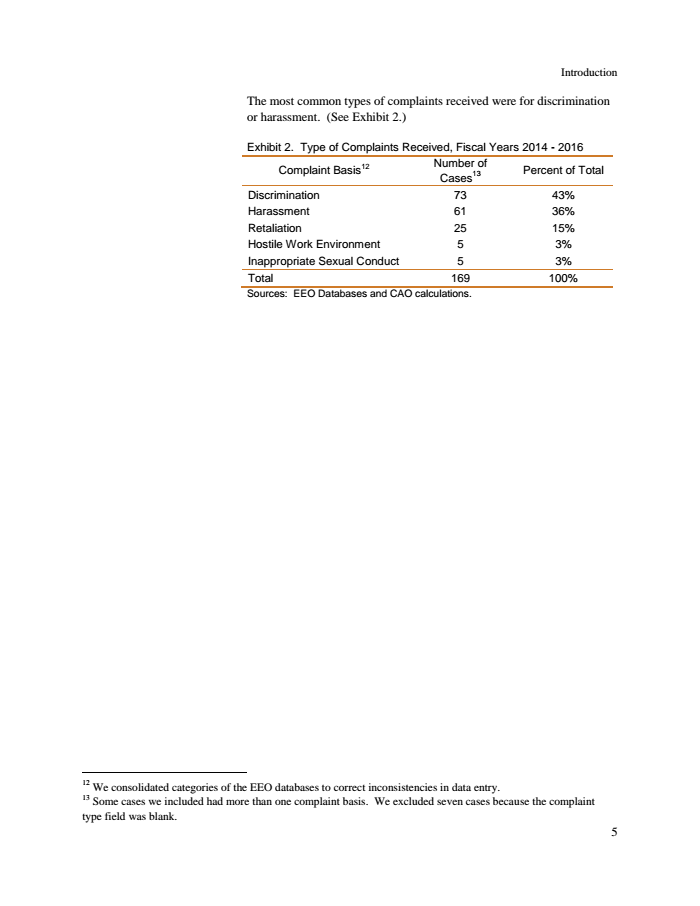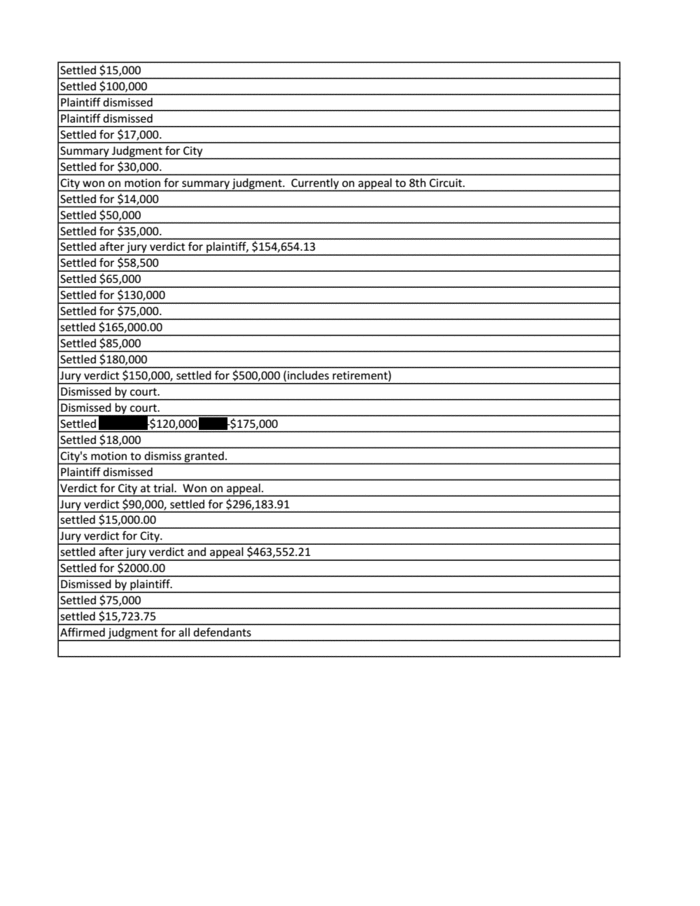An audit being presented to Kansas City Council’s Finance & Governance committee Wednesday morning lists multiple shortfalls within the city’s Equal Employment Opportunity and Diversity Office, an extension of the city’s Human Resource Department that is tasked with investigating city employee claims of harassment and discrimination in the workplace.
Key takeaways
- Auditors were unable to evaluate how long the EEO Office takes to investigate complaints.
- Auditors concluded some complaints that warranted an investigation may not be investigated.
- Investigators do not always communicate to complainants whether an investigation will occur or not or why.
The EEO Office received 169 complaints between fiscal years 2014-2016 according to the audit; the majority of those were either discrimination or harassment complaints.
Complaint Eligibility Decision Process
According to the city audit, “Without proper documentation demonstrating the eligibility of complaints, some complaints that warranted an EEO investigation may not be investigated.”
Auditors concluded investigators did not always document how and why a decision was made to pursue or drop an investigation.
Communication with Complainants
A complaint must meet certain criteria in order for the EEO Office to investigate.
According to the city audit, “The EEO Office does not always communicate to complainants whether an investigation will or will not occur and when it is communicated, it is not always timely. In addition, when complaints are not investigated, the reason is not clearly communicated.”
The communication pitfalls may cost the city because according to the audit, “complainants may believe the city is not adequately addressing their concerns and take their complaint to the EEOC, MCHR and the court system.”
A 41 Action News open records request found the city of Kansas City has settled $2,854,614 in EEO claims between January 2013 and March 2017.
Length of Investigations
41 Action News reported last month on a half-million dollar settlement with a city employee in the Water Services Department. Her lawyer claimed then that some claimants of discrimination or harassment by the city went unanswered for extended periods of time.
In response, the city released a statement saying in part: “The average processing for a complaint is 66 days.”
The full statement reads:
"The work of the City’s Equal Employment Opportunity investigators is vital for the City because we value all our employees and want them to feel welcomed and successful in our workplace.
Since inception until recently, the EEO unit operated with 1.5 FTEs. With improving economic times, the City Manager, with the recommendation of the Law Department, was able to provide two additional FTEs in the FY16 budget, which has dramatically increased the efficiency of the work unit. The unit has decreased the investigation time by 55% over the last two years, and its efficiency is continuing to increase. The City’s goal is to provide each employee who makes a complaint with a timely investigation and response.
With the rare exception of a complaint that may have been lost in the system, the City has not taken multiple years to process a complaint, and the current average processing time is 66 days. The City of Kansas City is investigating and processing claims more quickly due its investment in staffing, which results in a more efficient use of taxpayer monies."
The city audit of the EEO Office found that number to be underreported because the city was not using the proper calculations, and the actual length of investigations could not be determined because data gathered by the department was not sufficient for a calculation.
"Because the data fields were not sufficiently reliable, we could not determine with confidence how long it took from the time a complaint was received until a case was closed," according to the audit.
Auditor Recommendations
The city auditor submitted 10 recommendations to the Kansas City’s Department of Human Resources Director Gary O’Bannon, who agreed with all 10 recommendations.
1. The director of human resources should ensure a file is established and maintained for each complaint submitted to the EEO Office.
2. The director of human resources should ensure EEO staff use standardized checklists and documentation procedures when determining EEO complaint eligibility.
3. The director of human resources should ensure EEO investigators demonstrate their investigation planning process within the complaint file.
4. The director of human resources should ensure EEO staff documents how investigation conclusions are linked to evidence in the EEO files.
5. The director of human resources should ensure EEO statements and conclusion in the final summary undergo a documented quality assurance process.
6. The director of human resources should ensure EEO staff follows office policies on investigation file organization and documentation.
7. The director of human resources should ensure a written communication is sent promptly to complainants explaining whether or not complaints submitted to the EEO Office will be investigated and the reason why or why not.
8. The director of human resources should develop procedures to ensure EEO database information is accurate and complete.
9. The director of human resources should ensure cases that are not investigated are excluded from the calculation used to establish the average number of days to complete an EEO investigation.
10. The director of human resources should ensure EEO staff tracks the amount of time each milestone in the EEO process takes.
See the full audit below:




